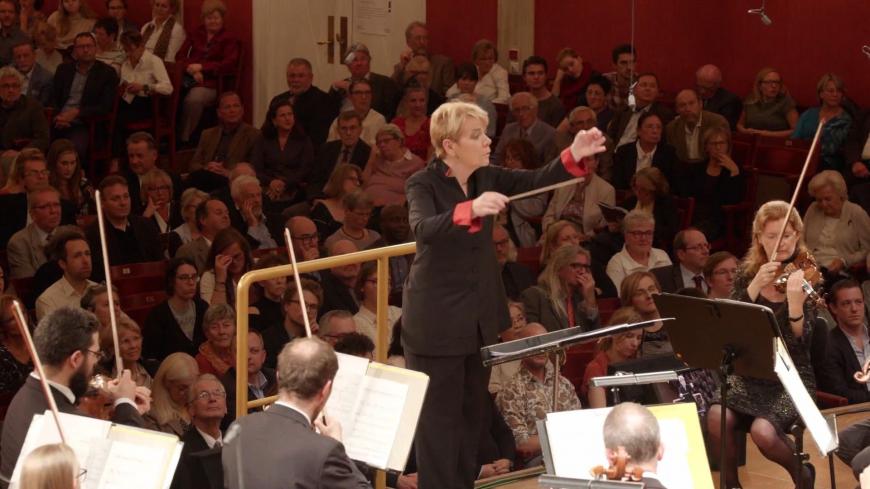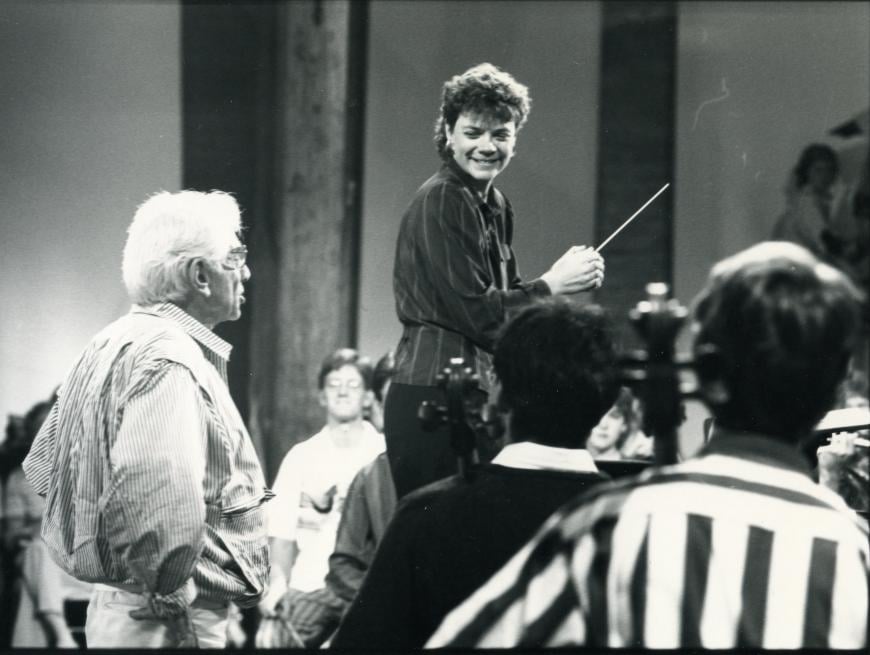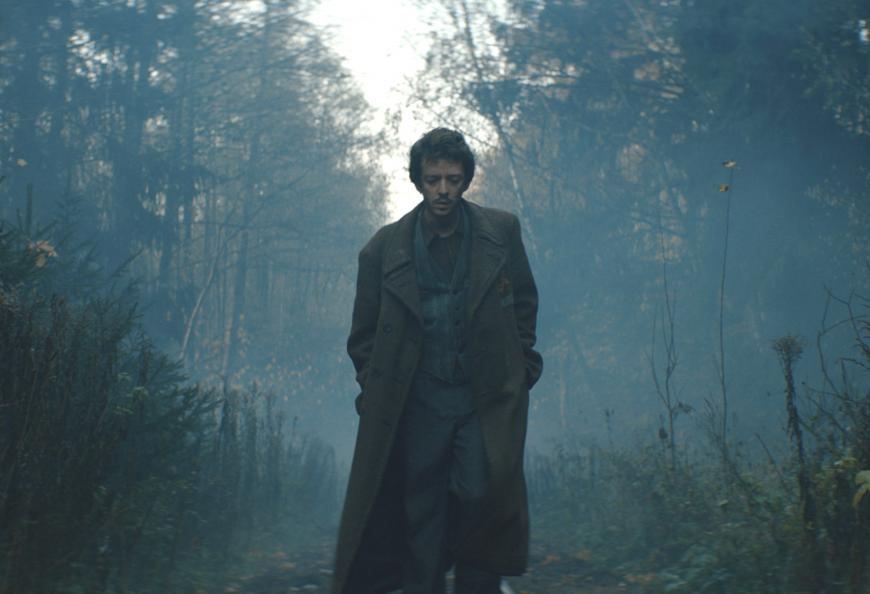
The Conductor, Centerpiece Documentary at the 2021 San Francisco Jewish Film Festival, reveals Marin Alsop — outgoing music director of the Baltimore Symphony, chief conductor of the Vienna Radio Symphony Orchestra and of the Ravinia Festival — in many more dimensions than audiences see as she leads orchestras around the world (including, for 25 eventful years, the Cabrillo Festival).
Film director Bernadette Wegenstein explains:
The main character in the film for me was not only Marin the adult who made it as a first female conductor, but Marin the little 9-year-old girl who was told that she could not realize her dream of becoming a conductor because of her gender.
This was the reason not only to use a reenactment of this first ‘scene’ of her life-dream when she saw Leonard Bernstein conduct during a Young People’s Concert, but also to come back to this question over and over in the film’s narrative.
Why didn’t she give up? What kept her going back to the dream of her 9-year-old self? The answer became clear to me making the film: her love of music and her steely resolve to see her dream of becoming a conductor through.”
More about The Conductor below, but first information about the festival, the oldest and biggest of the genre, holding sway in the Castro Theatre for four decades, after starting in the Roxie in 1980.
As everybody else, SFJFF has been struggling with COVID-19, returning this year for the first time since 2019 and doing it in a somewhat complicated manner. Streaming films are available from July 22 – Aug.1, but “to provide a more festival-like experience,” a Suggested Viewing Guide provides information to coordinate use of the Jewish Film Institute Digital Screening Room ... watching together, separately.
Also, on July 24 and 25, there are screenings in the Castro for audiences, with strict pandemic precautions.
Jewish Film Institute Executive Director Lexi Leban explains: “We really were not sure what was going to happen this year, so we are thrilled to be back in the Castro for a limited theatrical run with the highest quality slate of groundbreaking and provocative films. The lineup reflects the full breadth of Jewish identity and the perseverance of independent filmmakers during a global pandemic. There is nothing like a community experiencing a film premiere together in the dark.”
Back to The Conductor — it can be viewed any time during the festival. Strangely — but also logically — there exists another film called The Conductor, from 2018, also about a woman conductor, Antonia Brico, who preceded Alsop, being active at a time that just wouldn’t allow the same kind of prominence Alsop achieved.

The new film shows Alsop leading concerts around the world, from Mozart’s Magic Flute in São Paulo to Mahler’s Symphony No. 1 in Lucerne to Bernstein’s Mass in Baltimore, and her opening concert in Vienna.
Born into a musical and Jewish family in New York, Alsop willed herself to become a conductor from age 9 on, when she attended one of Leonard Bernstein’s Young People’s Concerts. Having met rejections because of her gender, Alsop’s perseverance, resiliency, and love of music helped her overcome obstacles and become the groundbreaking artist she is today.
Film director Wegenstein said: “I think any artistic process is personal, but in the case of The Conductor, there could not have been a better personal match than between my love and familiarity with classical music with my interest in and practice of feminist thought.
“As someone who grew up in Vienna and whose grandparents were classically trained musicians unable to succeed during Nazi Austria, but whose mother instilled in her the deepest love and appreciation of classical music — directing a film about Marin Alsop as the first woman to break the glass ceiling as a female conductor was no less than a dream come true.”
The festival presents some 50 films from over 20 countries with an unprecedented number of shorts. This year’s themes range from poignant coming-of-age films to complex narratives surrounding Jewish identity. Five films address LGBTQI+ issues, eight films on the joys and pains of teenage life, seven explore topics and themes relating to the Israeli-Palestinian region. Participating are 25 feature directors and producers that identify as female or non-binary. Literature takes center stage in five films, and the creation of music is the subject of three films.

The in-person opening night film is Persian Lessons, taking place in 1942 as a young Belgian man is arrested by the SS and sent to a concentration camp in Germany. He avoids execution by swearing to the guards that he is not Jewish but Persian, but then he is tasked to teach Persian to a German officer, being forced to invent a language. The film by Vadim Perelman (of House of Sand and Fog) is shown only in the Castro, at 8:15 p.m. on July 24.
The streaming “opening night” film is Sam Hobkinson’s Misha and the Wolves, about a 7-year-old’s trek through Holocaust-era Europe, until she is adopted by a pack of wolves ... and that’s just the setup to the true story about Misha’s bestselling memoirs sought by Oprah and Disney when her publisher discovers “a deeper and darker truth.” (Also shown in the Castro, at 6:45 p.m. July 25.)
Agnieszka Holland’s film Charlatan is a biopic of Czech healer Jan Mikolášek who rose to fame in the 1940s with his uncanny ability to diagnose disease with a mere glance at the patient’s urine. The man who treated all who entered his clinic, from the poor to the Nazis — is he an unorthodox healer ahead of his time or a mere charlatan? Laura Thielen will moderate the online Q&A with Holland.




